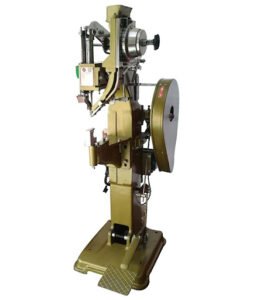In modern electrical and power distribution systems, copper busbars play an essential role in ensuring efficient and reliable energy transfer. Known for their exceptional electrical conductivity, durability, and heat resistance, copper busbars have become a standard choice across industries like power generation, construction, automotive, and renewable energy. As demand for high-performance electrical systems increases, choosing the right copper busbars manufacturer becomes a key factor in ensuring consistent quality and performance.
What Are Copper Busbars?
A copper busbar is a metallic strip or bar that conducts electricity within a switchboard, distribution board, substation, or other electrical apparatus. Unlike traditional cabling systems, busbars allow the transfer of large current loads with minimal energy loss. These bars are typically made of electrolytic tough pitch (ETP) copper or oxygen-free high conductivity (OFHC) copper, both of which provide superior conductivity and mechanical strength.
Copper busbars are widely used because of their ability to distribute power efficiently while reducing system resistance and heat generation. They can be customised into different shapes—flat, round, or tubular—depending on the electrical application and load requirements.
Why Copper Is Preferred Over Aluminium
While aluminium is also used in electrical systems, copper busbars outperform it in several critical aspects:
-
Higher Conductivity: Copper has about 60% higher electrical conductivity than aluminium, enabling better current flow with smaller cross-sectional areas.
-
Superior Durability: Copper is mechanically stronger and less prone to deformation, making it ideal for heavy-duty industrial environments.
-
Thermal Stability: It can withstand higher operating temperatures without losing conductivity.
-
Corrosion Resistance: Copper’s natural resistance to oxidation ensures long-term reliability, even in humid or corrosive conditions.
-
Ease of Fabrication: Copper is easier to machine, weld, and bend, allowing for precise customisation during manufacturing.
The Role of Copper Busbars in Power Distribution
In electrical networks, busbars function as the main pathways that distribute power from one point to multiple output circuits. Their design reduces wiring complexity and increases system safety. Typical applications include:
-
Power generation plants and substations for efficient transmission.
-
Switchgear and panel boards where compact and reliable connections are needed.
-
Electric vehicles and renewable energy systems to optimise current flow.
-
Data centres and telecom systems where uninterrupted power supply is critical.
-
Industrial automation systems for consistent voltage distribution.
By using copper busbars instead of conventional cables, companies can achieve lower power losses, better heat dissipation, and enhanced system stability.
Choosing the Right Copper Busbars Manufacturer
Selecting a reliable copper busbars manufacturer is vital to ensure the product meets both performance and safety standards. Here are the key factors to consider:
-
Material Quality: Ensure the manufacturer uses high-purity copper (minimum 99.9%) for optimal conductivity.
-
Manufacturing Precision: Look for advanced fabrication processes such as extrusion, CNC machining, and surface finishing to achieve accurate dimensions.
-
Customisation Options: A good manufacturer should offer various shapes, sizes, and coatings (such as tin or silver plating) to match application needs.
-
Testing and Certification: Reputed manufacturers test their products for electrical, mechanical, and thermal performance under international standards like ASTM and IEC.
-
Sustainability: With increasing environmental awareness, manufacturers adopting eco-friendly production and recycling methods are highly preferred.
Advantages of Using High-Quality Copper Busbars
-
Improved System Efficiency: Reduces voltage drop and energy loss during transmission.
-
Enhanced Safety: Minimises overheating and risk of short circuits.
-
Compact Design: Allows more efficient use of space in electrical panels.
-
Long Lifespan: Provides reliable service even in high-load environments.
-
Low Maintenance: Resistant to corrosion and wear, reducing maintenance costs over time.
Conclusion
The importance of copper busbars in modern electrical systems cannot be overstated. Their unmatched combination of high conductivity, strength, and versatility makes them indispensable in energy transmission and industrial applications. Partnering with an experienced copper busbars manufacturer ensures not only superior product quality but also greater operational efficiency and safety in every electrical installation.







